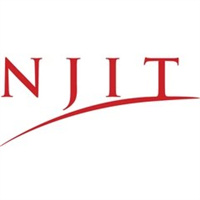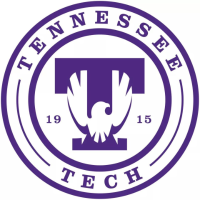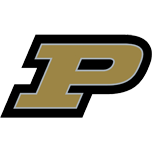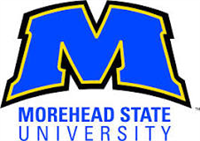What do they do?
Operate, install, adjust, and maintain integrated computer/communications systems, consoles, simulators, and other data acquisition, test, and measurement instruments and equipment, which are used to launch, track, position, and evaluate air and space vehicles. May record and interpret test data.
Also known as:
Avionics Installation Technician, Avionics Technician, Avionics Test Technician, Engineering Technician, Engineering Test Technician, Flight Test Instrument Technician, Instrumentation Technician, Systems Test Technician, Test Technician
-
8%
Change
Ranks #21 in job growth rate80Job Openings
Ranks #4 in net job growth
Colleges with the most graduates that become Aerospace Engineering and Operations Technologists and Technicians
-
New Jersey Institute of Technology
Newark, NJ
-
Purdue University-Main Campus
West Lafayette, IN
-
Texas A&M University-College Station
College Station, TX
-
University of Colorado Boulder
Boulder, CO
-
Tennessee Technological University
Cookeville, TN
Looking for colleges that offer a specific major? Use the College Match Tool to find your best-matched schools and discover your estimated Net Price!
- Doctorate or Professional Degree (1%)
- Master's degree (3%)
- Bachelor's degree (18%)
- Associate's degree (20%)
- Some college, no degree (30%)
- High school diploma equivalent (24%)
- Less than high school diploma (4%)
People in this career often have these skills:
- Critical Thinking - Using logic and reasoning to identify the strengths and weaknesses of alternative solutions, conclusions, or approaches to problems.
- Reading Comprehension - Understanding written sentences and paragraphs in work-related documents.
- Operations Monitoring - Watching gauges, dials, or other indicators to make sure a machine is working properly.
- Quality Control Analysis - Conducting tests and inspections of products, services, or processes to evaluate quality or performance.
- Active Listening - Giving full attention to what other people are saying, taking time to understand the points being made, asking questions as appropriate, and not interrupting at inappropriate times.
- Speaking - Talking to others to convey information effectively.
- Complex Problem Solving - Identifying complex problems and reviewing related information to develop and evaluate options and implement solutions.
People in this career often know a lot about:
- Mechanical - Knowledge of machines and tools, including their designs, uses, repair, and maintenance.
- Engineering and Technology - Knowledge of the practical application of engineering science and technology. This includes applying principles, techniques, procedures, and equipment to the design and production of various goods and services.
- Mathematics - Knowledge of arithmetic, algebra, geometry, calculus, statistics, and their applications.
- Production and Processing - Knowledge of raw materials, production processes, quality control, costs, and other techniques for maximizing the effective manufacture and distribution of goods.
- Customer and Personal Service - Knowledge of principles and processes for providing customer and personal services. This includes customer needs assessment, meeting quality standards for services, and evaluation of customer satisfaction.
- English Language - Knowledge of the structure and content of the English language including the meaning and spelling of words, rules of composition, and grammar.
- Administrative - Knowledge of administrative and office procedures and systems such as word processing, managing files and records, stenography and transcription, designing forms, and workplace terminology.
- Physics - Knowledge and prediction of physical principles, laws, their interrelationships, and applications to understanding fluid, material, and atmospheric dynamics, and mechanical, electrical, atomic and sub-atomic structures and processes.
- Computers and Electronics - Knowledge of circuit boards, processors, chips, electronic equipment, and computer hardware and software, including applications and programming.
People in this career often have talent in:
- Oral Comprehension - The ability to listen to and understand information and ideas presented through spoken words and sentences.
- Written Comprehension - The ability to read and understand information and ideas presented in writing.
- Oral Expression - The ability to communicate information and ideas in speaking so others will understand.
- Problem Sensitivity - The ability to tell when something is wrong or is likely to go wrong. It does not involve solving the problem, only recognizing that there is a problem.
- Deductive Reasoning - The ability to apply general rules to specific problems to produce answers that make sense.
- Inductive Reasoning - The ability to combine pieces of information to form general rules or conclusions (includes finding a relationship among seemingly unrelated events).
- Information Ordering - The ability to arrange things or actions in a certain order or pattern according to a specific rule or set of rules (e.g., patterns of numbers, letters, words, pictures, mathematical operations).
- Near Vision - The ability to see details at close range (within a few feet of the observer).
- Written Expression - The ability to communicate information and ideas in writing so others will understand.
- Flexibility of Closure - The ability to identify or detect a known pattern (a figure, object, word, or sound) that is hidden in other distracting material.
People in this career often do these activities:
- Test performance of electrical, electronic, mechanical, or integrated systems or equipment.
- Estimate technical or resource requirements for development or production projects.
- Inspect equipment or systems.
- Confer with technical personnel to prepare designs or operational plans.
- Operate computer systems.
- Interpret design or operational test results.
- Document design or operational test results.
- Calibrate scientific or technical equipment.
- Maintain test equipment.
- Install production equipment or systems.
- Fabricate devices or components.
- Assemble equipment or components.
- Design electrical equipment or systems.
- Document technical design details.
- Maintain mechanical equipment.
This page includes data from:

 Occupation statistics: USDOL U.S. Bureau of Labor Statistics Occupational Employment Statistics
Occupation statistics: USDOL U.S. Bureau of Labor Statistics Occupational Employment Statistics









